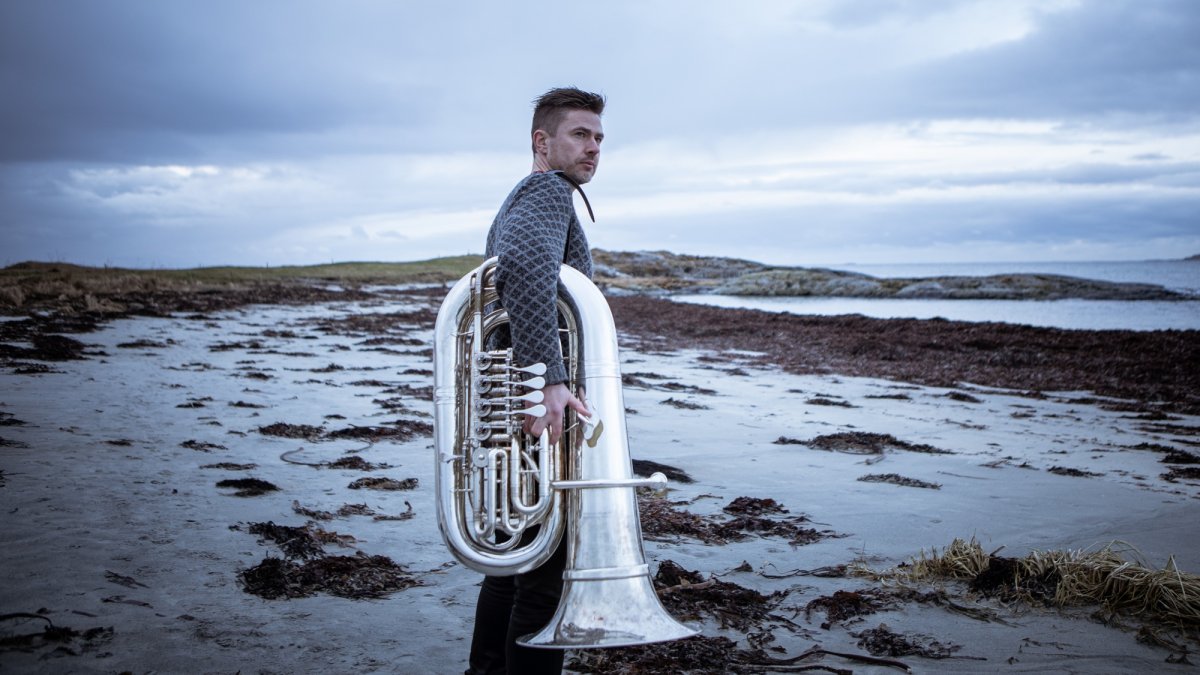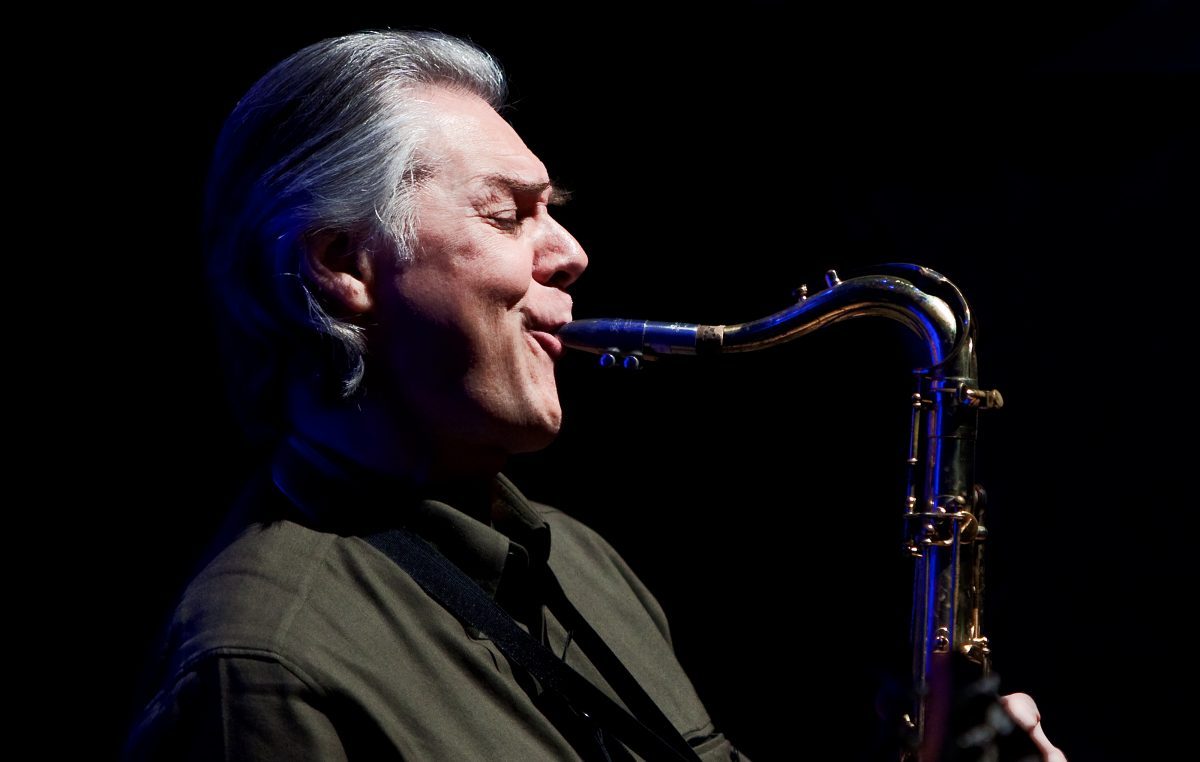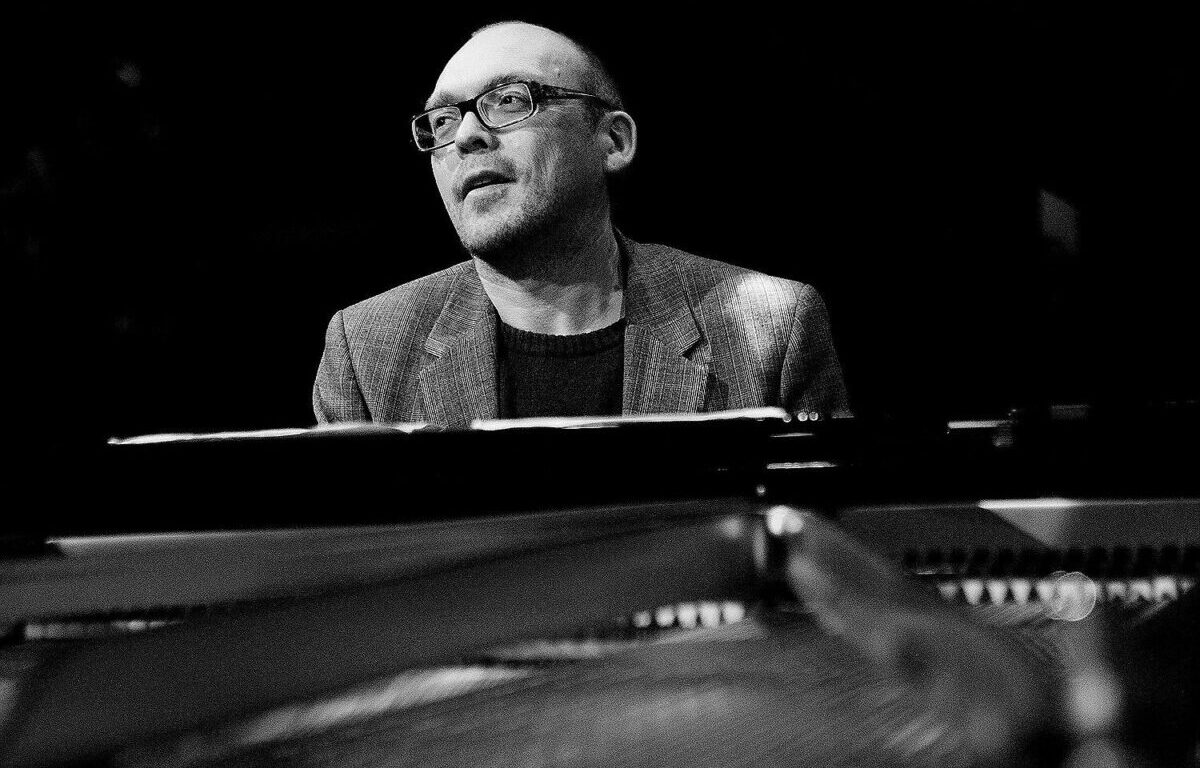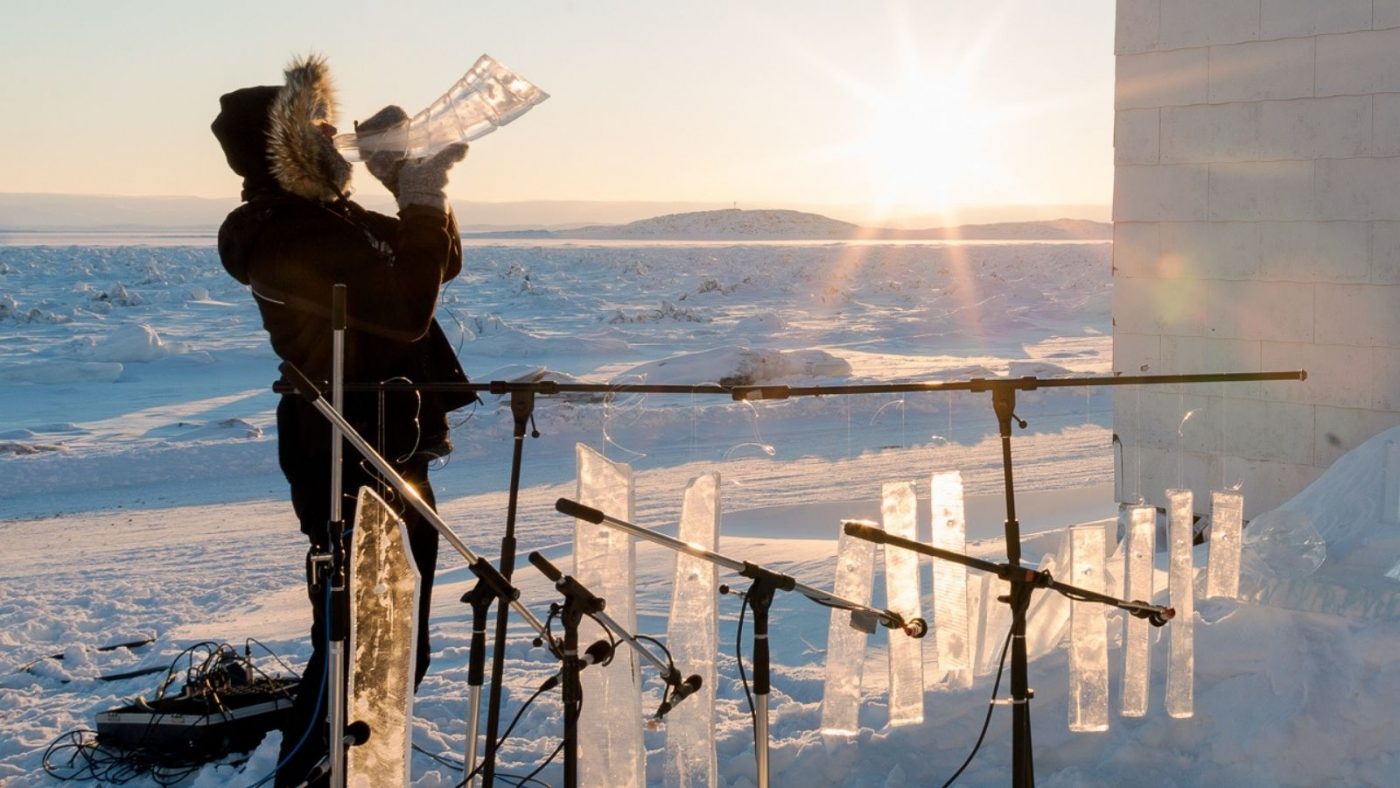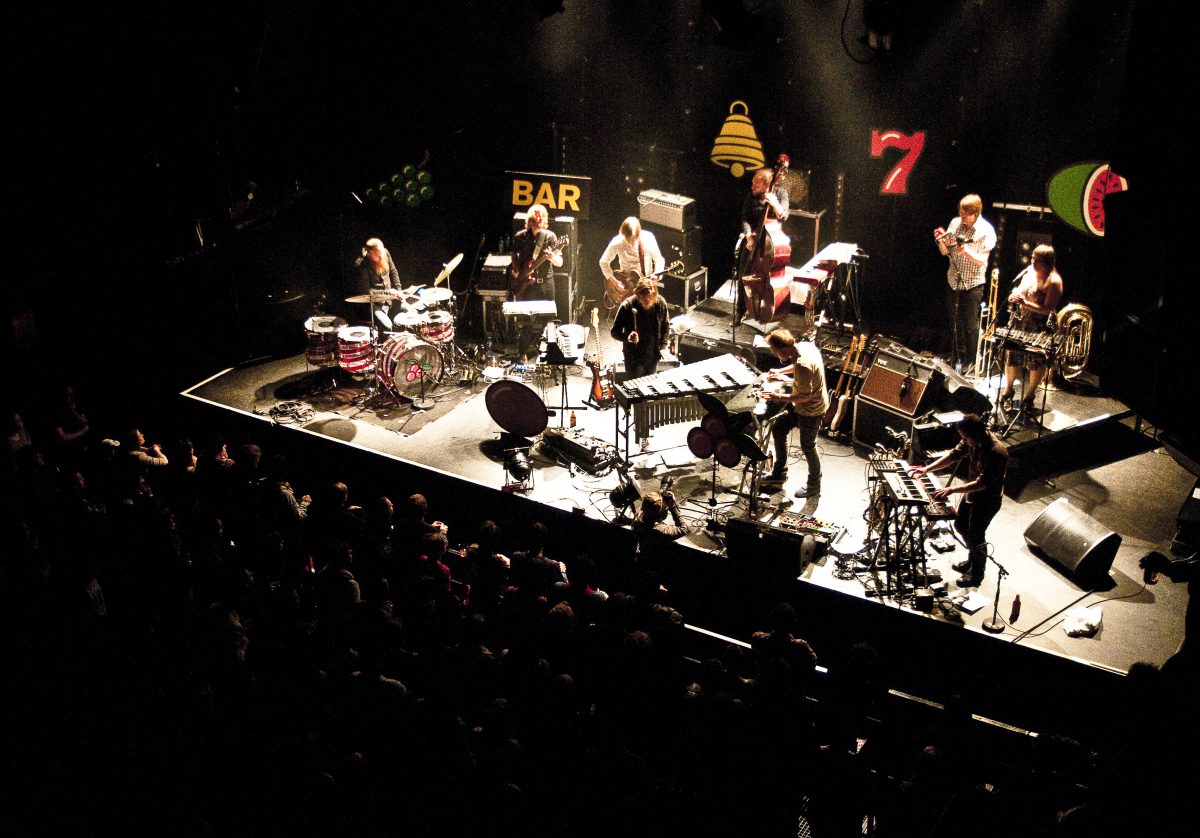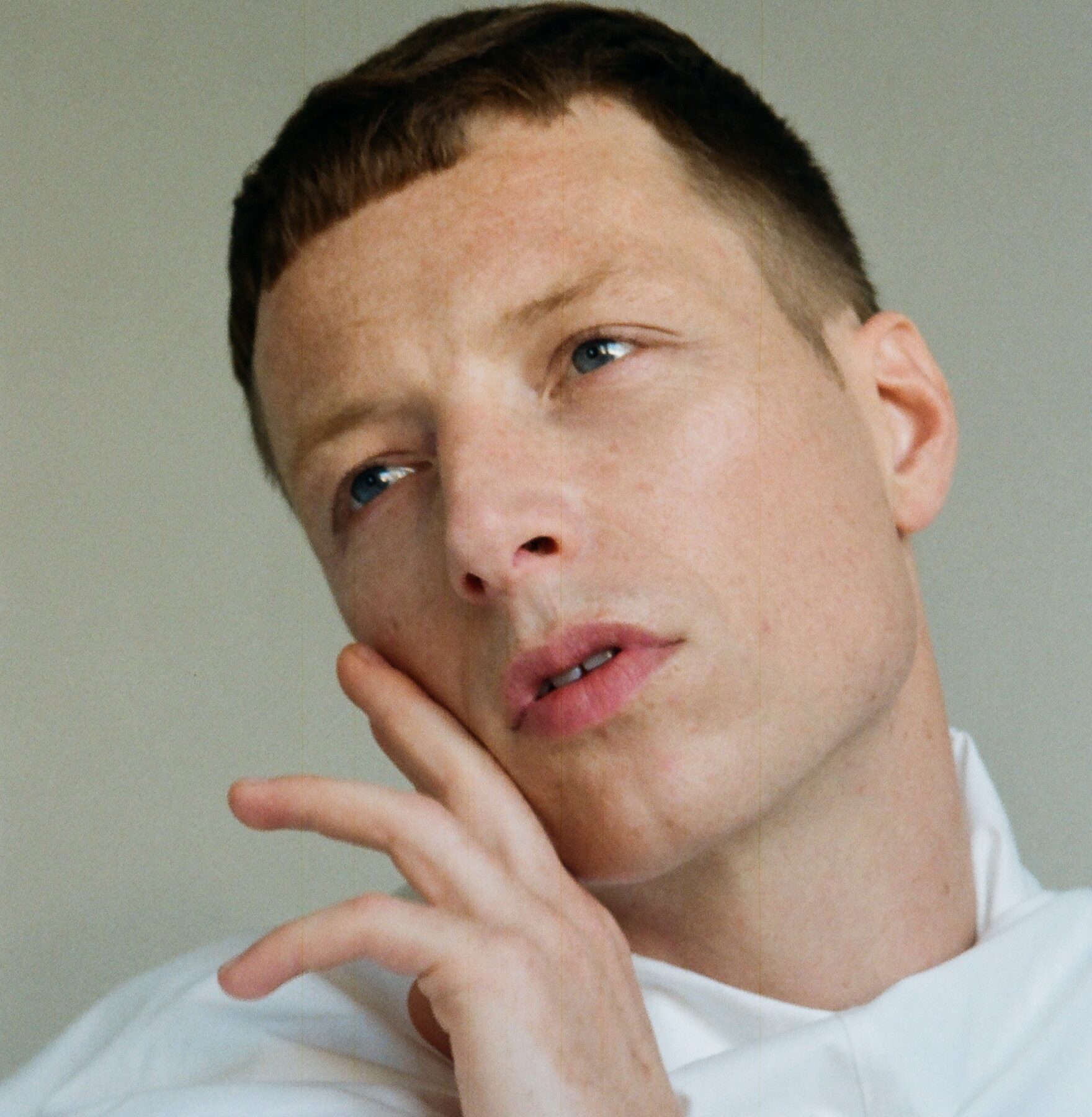As the 30th edition of the EFG London Jazz Festival arrives this November, Fiona Talkington surveys the extraordinary Norwegian talents performing this year.
It wasn’t until this summer that I made my first trip back to Norway after the inevitable gap of the pandemic period. Having travelled there several times a year for many years before that it was emotional just to touch down on Norwegian soil again, to hear festival sound checks at the Punkt Festival in Kristiansand. And now, as planes land in London this month, bringing Norwegians back to us at the EFG London Jazz Festival, which has a long relationship with Norwegian music, what is equally exciting?
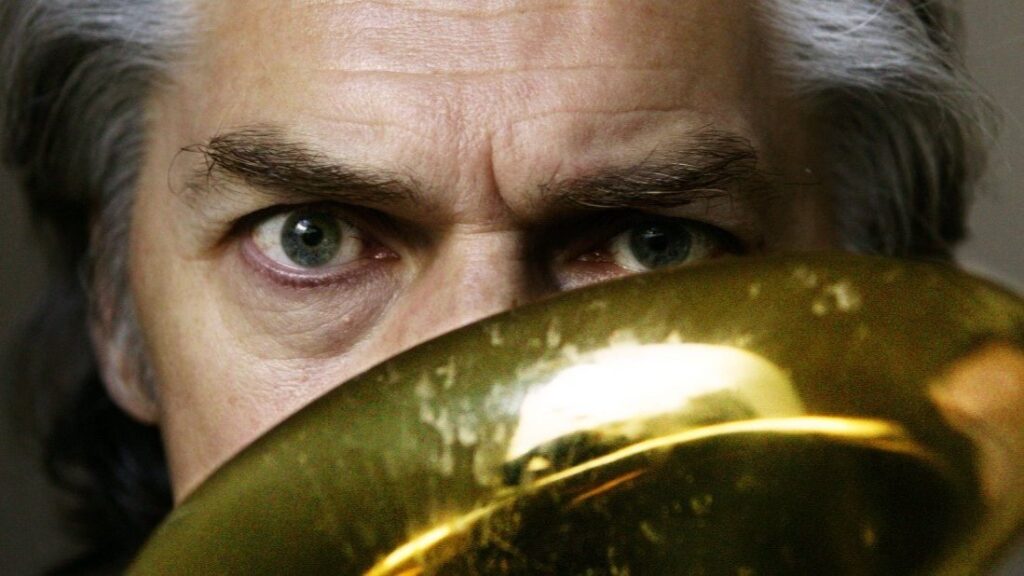
Jan Garbarek (photo: Bremme & Hohensee)
Well, there is one of the most revered names in the jazz world globally: Jan Garbarek, who turned 75 this year. There’s always a moment of anticipation when Garbarek (Royal Festival Hall, 13 November) walks out on stage, carrying his saxophones by the long handles of his bag, giving an almost shy glance at the audience. Then there’s a breath, a sound before we’re transported back to the urgency of his music, even before his debut Afric Pepperbird, recorded for ECM in 1970. Fifty years later, you can sense that passion for poetic and turbulent music.
There’s a physicality to Garbarek’s performance, not a visible showmanship but a real sense of an interaction with the space he’s in, playing with, engaging with the acoustic. And with the other members of his band, with whom he playfully interacts.
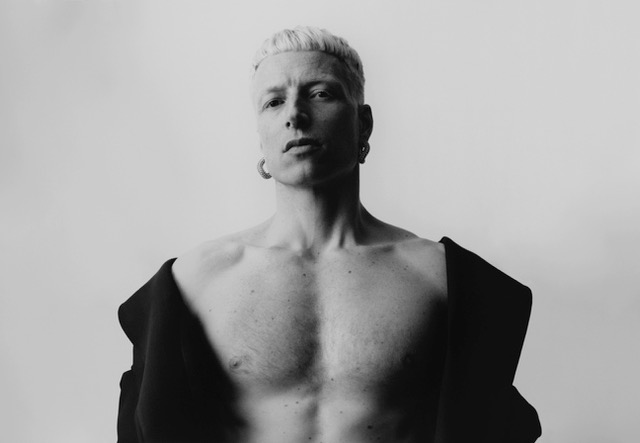
Bendik Giske (Photo: Luis Alberto Rodriguez)
That word, physicality, draws me to a number of the other Norwegian musicians appearing at this year’s festival. Take Bendik Giske (Kings Place, 19 November), another saxophonist but not one looking back at half a century of performance, but, according to Giske, to the future, to what he calls the “not yet”. The saxophone, he says, is a relatively young instrument. There are “uncharted territories” he believes, not just in what the instrument can do but in all the possibilities for the performer to physically explore. To be part of Giske’s performance is to be swept up in his circular breathing.
I once heard the Tord Gustavsen Trio (Cadogan Hall, 11 November) perform in a small wooden room at the Ole Bull Academy during the Vossa Jazz Festival. It was a Sunday morning, a quiet time at festivals. There was a sense that no one in the audience was breathing. There was a quietness to Gustavsen unlike anything else. He crouches over the piano, caressing it and, through him, emerging almost whispered melodies, fragile, imperceptibly shifting harmonies. The drummer, Jarle Vespestad, one of Norway’s most revered, most stylish performers, creates sounds as if tending to the broken wing of an injured bird. While the bassist intertwines melodies with the gentle vibration of his instrument.
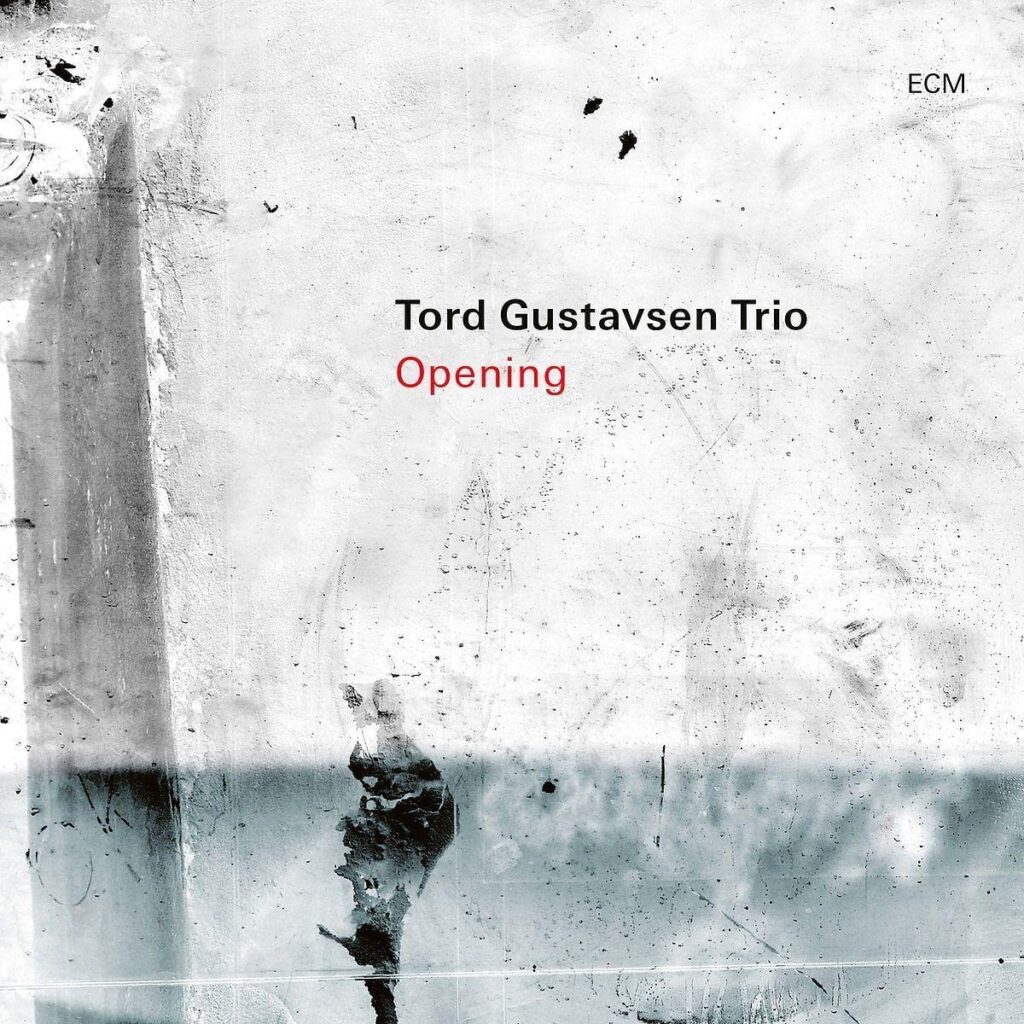
Opening by Tord Gustavsen Trio (Photo: ECM)
Vespestad is still with the Trio, his lyricism and colour absolutely key to the Gustavsen expanding worlds. The Trio’s bassist now is the adventurous Steinar Raknes. In London, they play an evening set at London’s Cadogan Hall. Not as Nordic as a wooden room on a Sunday morning in Voss, but just imagine snowy shoes, the backdrop of mountains, and the warm inbreath of a Norwegian forest.
Opening for the Trio is a unique presence on the Norwegian jazz scene, Ellen Andrea Wang, a bassist, composer, and singer whose own physicality and presence has sent her on an unusual musical journey, from playing with such luminaries as Manu Katché and Marilyn Mazur, to wonderful early musical playgrounds with her band Pixel, and more recently collaborating with the lyricism of guitarist Rob Luft and drummer Jon Fält.
A jazz trio led by a tuba player creates its own unique sense of wonder and physical presence. For many the UK-based label Edition Records brought the charismatic tuba player Daniel Herskedal (Kings Place, 18 November) into the spotlight, first releasing an album with saxophonist Marius Neset, and then beginning a partnership with pianist Eyolf Dale and percussionist Helge Andreas Norbakken. Together they blended supreme lyricism, the most gorgeous of sounds and a sense of voyage. The palette of colours that takes in middle-eastern harmonies, the heat of the desert, the warmth of the Mediterranean – well the title of their 2015 release Slow Eastbound Train says it all. Five albums on – their latest is Harbour – and they are still touring together.
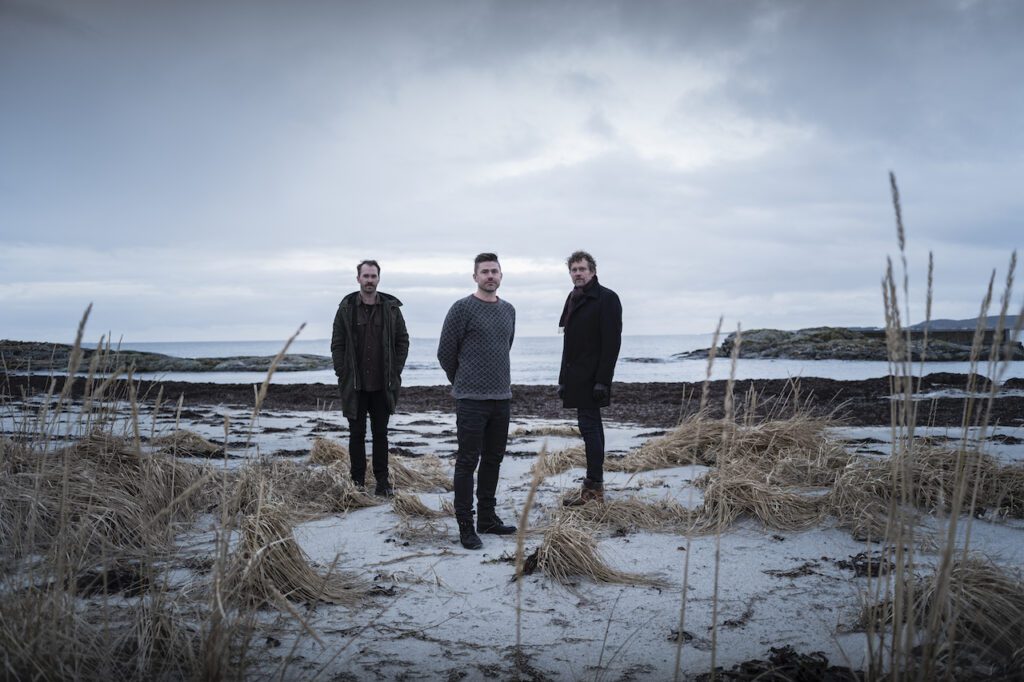
Daniel Herskedal , Eyold Dale, Helge Andreas Norbakken (Photo: Knut Aaserud)
“When the pandemic hit, things got very clear to me what to continue and what to let go,” Herskedal says. “Making this little ensemble with Eyolf and Helge survive became one of my most important goals and because of the extra time I suddenly got I made the Harbour compositions earlier than planned. The way they take my music to a higher level, the way we interplay and make the most out of each other’s playing is special in this trio.” Norbakken has an array of colour, a mischievous approach to rhythm, a sense of movement and choreography that takes this steamer of a trio into uncharted waters. His passion for music from many different traditions has led him to work with such diverse musicians as Jon Balke’s Siwan project, the great Sámi singer Mari Boine, with the legendary trumpet player Jon Hassell and Barokksolistene, alongside violinist Bjarte Eike.
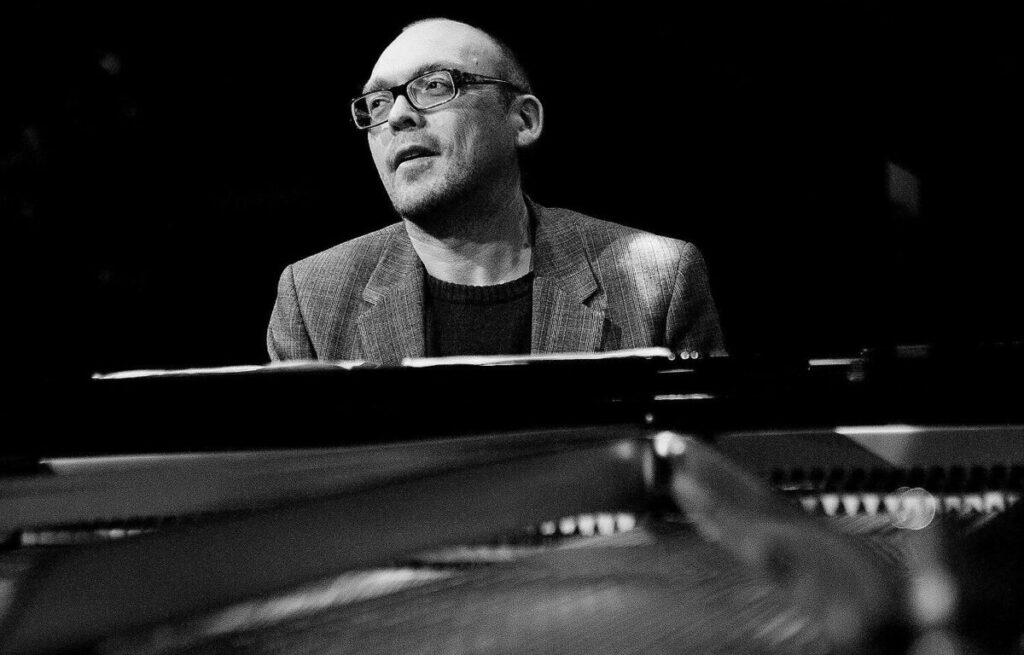
Bugge Wesseltoft (photo: Egil Hansen)
It’s not that long since pianist Bugge Wesseltoft (Queen Elizabeth Hall, 12 November), one of Norway’s jazz legends, came to London, touring his recent solo album Be Am sharing his experience of the pandemic with melodies written alone, during solitary walks in the forest. For this year’s EFG London Jazz Festival he is with the compelling group RYMDEN, alongside two musicians we came to love in the much-missed Esbjørn Svensson Trio: Dan Berglund on bass and Magnus Öström on drums. Out of all the searchings for new identities and new ways of working since the tragic death of Svensson in 2008, RYMDEN seems to have given them a freedom and a sense of fun, which Wesseltoft also thrives on.
For Wesseltoft, the piano becomes a deep dive into a pit of colourful balls; who knows what’s in there? In the years when e.s.t were enthralling us with piano melodies born out of a world inspired by the jazz-infused Swedish folk tunes of Jan Johansson, Wesseltoft was leading Norwegian jazz towards his ‘New Conception’ of jazz. You don’t have to be sitting in the front row to be swept up by the sheer physicality of this trio, but if you do find yourself with these coveted seats, you’ll never be the same again.
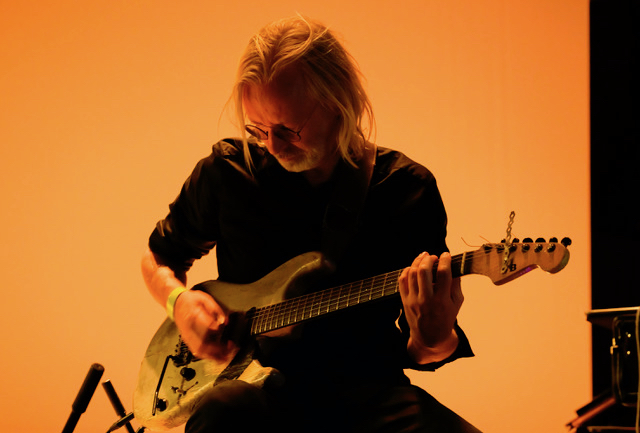
Eivind Aarset (Photo: Alf Solbakken)
Guitarist Eivind Aarset is a mixture of musical brilliance and being one of the gentlest, kindest people you’re ever likely to meet. His playing is exquisite, with a range of sound emerging from behind the blond hair that seems to shield him from the spotlight. He has worked with a vast array of musicians: a long term partnership with the Nils Petter Molvaer band, with Jon Hassell and Arve Henriksen and been at the heart of the Punkt Festival (with co-directors Jan Bang and Erik Honoré) since its beginnings in 2005. Aarset retuns to London this year (Barbican, 19 September) for one of my own festival top picks: a reunion with the Tunisian musician Dhafer Youssef.
When I was presenting the The Late Junction programme on BBC Radio 3, we commissioned music from Youssef, who had begun to have more and more contact with Norwegian musicians. It led eventually to the album Divine Shadows. Youssef’s profoundly spiritual singing and oud playing became embedded in the world of Norwegian music, and his band brought in the ambient washes and eastern-flavoured drones of Aarset’s playing, along with urgent drumming of Rune Arnesen, trumpeter Arve Henriksen and bassist Audun Erlien.
“I just love playing with musicians from the North. They are more African than some Africans and they are an inspiration to me,” Youssef told me at the time. “Our gigs together are not about what happens for an hour on stage. These are simply great human beings, and how we are as musicians comes as much from the time we spend hanging around: waiting at airports, traveling together, being on the road, in a bus, sharing good food.” The London Jazz Festival brings together that magical pairing of Youssef and Aarset, along with the gorgeous African kora playing of Ballaké Sissoko in a programme called ‘Digital Africa’ at the Barbican in the final weekend of the festival.
Finally, a new Norwegian name to the EFG London Jazz Festival, guitarist Iver Cardas (Jazz at the Oxford in Kentish Town, 16 November), making a name for himself after winning the First Prize in the 4th International Jarek Śmietana Jazz Guitar Competition in Kraków. His mother plays in the acclaimed Vertavo String Quartet and his father is in the Norwegian Radio Orchestra (KORK). Cardas is on stage in London with British trumpeter Alexandra Ridout, both are currently studying in Manhattan. Of course, there’s always a warm welcome to Norwegian musicians here for the first time, in the same festival some of those who helped to put Norway on the world’s musical map.
The EFG London Jazz Festival 2022 runs from 11-20 November 2022.
Top image: Daniel Herskedal (photo: Knut Aaserud).
Interested in staying in touch with Norwegian Arts and receiving news of upcoming Norwegian cultural highlights in the UK? Sign-up for our newsletter.

